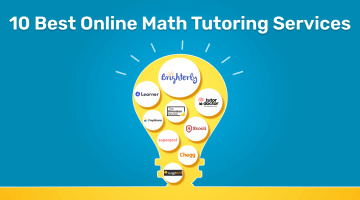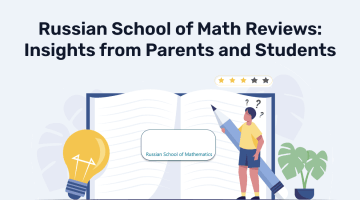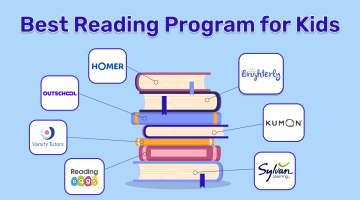Pros and Cons of Homeschooling
reviewed by Jo-ann Caballes
Updated on January 23, 2025
Homeschooling has become increasingly popular, offering a unique and potentially enriching learning environment. However, it’s a hard decision for any parent since you become the only one responsible for your child’s grades and socialization.
Check out this article to learn the pros and cons of online homeschooling and determine whether this studying approach fits your child’s needs.
Is homeschooling better?
According to the National Home Education Research Institute, homeschooled students’ test scores on standardized academic achievement tests are usually 15% to 25% higher than those of public school students. So, it’s safe to say that homeschooling is more concentrated on closing a child’s knowledge gap.
We advise you to evaluate the pros and cons of the homeschool approach and find a relatable tutor who can help your child succeed. With Brighterly tutors, you’ll get expert help in school math for any child, including students with special needs. We provide positive interaction and a boost in confidence so that your kid can improve in math.
Book the first free lesson, so we can find the best tutor and develop the learning curve to close the child’s knowledge gaps.
What are the pros and cons of homeschooling?
Switching from public school education can be a hard decision. That’s why we’ve gathered pros and cons of home education, so you can figure out whether it suits you.
Claire Law is a Qualified and Accredited MBACP (Accd.) Registered Integrative Psychotherapist, a university counselor, and a mental health expert. She is aware of homeschooling specifics, and so she warns parents about it.
“I know how vital a nurturing learning environment is for kids. Many parents nowadays are considering homeschooling for the first time.”
Let’s take a deep dive into the homeschooling pros and cons for kids and their parents. By the end of this article, you’ll find out whether this study approach suits you.
Pros of Homeschooling
Homeschooling is an advantageous studying approach for many families. Check the 4 main benefits of home education.
Pros of Homeschooling #1: Personalized curriculum
Homeschooling allows you to modify the curriculum to your child’s specific needs and interests. If they struggle with some math concepts, you can spend an extra day or week to ensure that the child understands it now. If they are gifted in science, they can quickly pass general topics and dive deeper into the more complex ones.
Homeschooling doesn’t have to be boring. With the right tutors, you can do it fun and exciting
Meanwhile, some people consider it as simultaneous homeschooling pros and cons. If your child is struggling with a complex topic in one subject, you’ll need to spend more time on it, taking away free time from them.
Pros of Homeschooling #2: Stronger family bonds
Homeschool education can also help you strengthen family bonds. Your kid doesn’t need to attend school, so you have more time together. You can create a positive environment fostering curiosity, exploration, and open communication.
Pros of Homeschooling #3: No bullying
Homeschooling can be a good option if you’re concerned about bullying or peer pressure in traditional schools. It’s one of the greatest benefits of homeschooling. You can still provide opportunities for socialization through extracurricular activities, homeschool groups, or community events.
Pros of Homeschooling #4: Perfect for students with special needs
If your kid needs special treatment, homeschooling is perfect for them. Parents and tutors work with the kid in 1-to-1 sessions, so they can focus their attention solely on the child’s needs.
Cons of Homeschooling
While homeschooling offers many advantages, it has some not-so-sweet specifics.
Cons of Homeschooling #1: Time commitment
Homeschooling requires a significant time investment, which is one of the biggest simultaneous pros and cons of homeschooling. So, you should ask yourself whether you can dedicate yourself to providing instruction or find a tutor for all school subjects. Determine whether you have a flexible lifestyle that can accommodate homeschooling. You may also hire nannies for your work hours.
Many tutors recommend switching to home education at the start of the school year, where accepting those changes is easier. Jeff Blum, who has been providing homeschool tutoring for more than 10 years, confirms this statement.
Jeff Blum, a part-time tutor working with students from grades K-12 at LA Tutors 123.
“The transition to homeschooling doesn't have to be painful or difficult, but it does require some planning.”
Grade requirements are a good baseline for understanding what parents need to cover, but they should not be the only factor in considering what will be taught during homeschooling. If your child is high-achieving, you probably want to aim to cover more material than simply the baseline grade requirements.
Cons of Homeschooling #2: Financial responsibilities
Curriculum materials, educational resources, and enrichment activities can add up the cost. Homeschoolers may not have access to the same assets as traditional schools, such as advanced labs, specialized equipment, or a full library.
It’s one of the biggest negatives to homeschooling since the child won’t experience certain subjects or learning styles that benefit from hands-on experiences.
Ensure that you provide as many school experiences as possible and your child will get the same hard and soft skills as their peers.
Cons of Homeschooling #3: Socialization concerns
Beware that even the best homeschooling education won’t provide classroom experiences, such as constant peer socialization for 6+ hours each day and developing a child’s crisis management soft skills.
While homeschooling doesn’t have to mean isolation, it does require intentional effort to create opportunities for socialization.
Cons of Homeschooling #4: Parental pressure
Homeschooling also adds parental pressure, as the responsibility for your child’s education falls entirely on you. It can be stressful, especially if you don’t have an educational background.
Professional tutors also told us that homeschooling has a lot of benefits, meanwhile, it comes with its own sacrifices. Amanda Schenkenberger, a homeschool coach at Homeschool Family Legacy, was a homeschooled kid, so she talks from experience on both sides.
“Choosing to homeschool is a big decision for everyone involved. It isn’t just an educational shift; it’s a lifestyle shift.”
- Have an open dialogue with your child about the transition. As you paint them a picture of homeschooling, ask them how they feel about this change.
- Involve your child in the decision-making process for the curriculum and extracurricular activities.
As a former homeschooled child and now a homeschooling mom, I believe the main advantage of homeschooling is tailoring the curriculum to my child as an individual. I learned the ins and outs of horses, dog breeding, and training, and I even got to travel to Europe for a few weeks on a private scholarship. Untethered to a desk and a districtwide curriculum, life was my school; through it, I received a rich education.
However, it also comes with some disadvantages, the biggest being a strain on the schedule. With all this freedom from me as a child, I needed a parent available to teach and guide me, which was a full-time job. Children still need to be invested in and supervised, even if their entire curriculum is online and independent.
Homeschooling with Brighterly
The perks of homeschooling with certified tutors are tremendous. Your child will receive high-quality instruction specifically tailored to their needs, whether mastering simple math or preparing for high school math in the 7 and 8 grades.
Brighterly tutors develop personalized learning plans that complement your homeschool curriculum. They will identify areas where your child needs extra help and create targeted lessons to fill these knowledge gaps.
The Brighterly platform has many tutors that specialize in teaching students with special needs. Regular interactions with a tutor can provide a positive social learning environment and role model. It can be especially beneficial for homeschooled students who crave external interactions.
Brighterly tutors can help your child prepare and feel calm on a test day if your homeschool uses standardized testing. Working with a supportive tutor can boost your child’s confidence in their academic abilities.
Conclusion: Should I homeschool my child?
Homeschooling can be a good practice, but it’s a big decision that requires careful consideration. So, while comparing «homeschooling VS public school», you need to understand your particular situation.
Sometimes, homeschooling can feel like a neverending run in circles, and that’s OK
Initially, you should find out the child’s needs and learning style. Determine whether they are visual, auditory, or kinesthetic learners to find a suitable study method and reputable tutor.
Identify the child’s potential socialization. Even the strictest introverts need occasional socialization with their peers. So, if you want to homeschool your kid, consider third-party classes like art or pottery.
Book the first free lesson at Brighterly to discover kids’ knowledge gaps and get personalized learning plan recommendations!

















